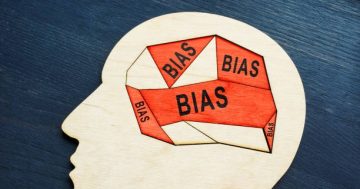
Studies show that performance increases due to caffeine intake are really the result of caffeine drinkers experiencing a short-term reversal of caffeine withdrawal. Photo: The Ginger Group, Facebook.
Travis Bradberry says reducing or cutting out your caffeine is one of the simplest – but often the hardest – ways of improving your performance at work.
This tip for improving your performance is one of the most straightforward methods I’ve provided thus far. For many people, it has the potential to have a bigger impact than any other single action.
The catch? You have to cut down on caffeine, and as any caffeine drinker can attest, this is easier said than done.
For those who aren’t aware, the ability to manage your emotions and remain calm under pressure has a direct link to your performance.
Millions of people have taken my emotional intelligence test, and I’ve found that 90 per cent of the top performers are high in emotional intelligence.
These individuals are skilled at managing their emotions (even in times of high stress) in order to remain calm and in control.
Most people start drinking caffeine because it makes them feel more alert and improves their mood. Studies suggest that caffeine actually improves cognitive task performance (memory, attention span, etc.) in the short term.
Unfortunately, these studies fail to consider the participants’ caffeine habits.
Research from Johns Hopkins Medical School shows that performance increases due to caffeine intake are the result of caffeine drinkers experiencing a short-term reversal of caffeine withdrawal.
By controlling the caffeine use in study participants, Johns Hopkins researchers found that caffeine-related performance improvement is non-existent without caffeine withdrawal.
In essence, coming off caffeine reduces your cognitive performance and negatively impacts your mood. The only way to get back to normal is to drink caffeine, and when you do drink it, you feel like it’s taking you to new heights. In reality, the caffeine is just taking your performance back to normal for a short period.
Drinking caffeine triggers the release of adrenaline. Adrenaline is the source of the ‘‘fight or flight’’ response, a survival mechanism that forces you to stand up and fight or run for the hills when faced with a threat.
The fight-or-flight mechanism sidesteps rational thinking in favour of a faster response. This is great when a bear is chasing you, but not so great when you’re responding to a curt email.
When caffeine puts your brain and body into this hyper-aroused state, your emotions overrun your behaviour. Irritability and anxiety are the most commonly seen emotional effects of caffeine, but caffeine enables all of your emotions to take charge.
The negative effects of a caffeine-generated adrenaline surge are not just behavioural. Researchers at Carnegie Mellon University found that large doses of caffeine raise blood pressure, stimulate the heart, and produce rapid shallow breathing, which deprives the brain of the oxygen needed to keep your thinking calm and rational.
Your self-control, focus, memory and information-processing speed are all reduced when you don’t get enough – or the right kind of – sleep. Your brain is very fickle when it comes to sleep. For you to wake up feeling rested, your brain needs to move through an elaborate series of cycles.
You can help this process along and improve the quality of your sleep by reducing your caffeine intake. Here’s why you’ll want to:
Caffeine has a six-hour half-life, which means it takes a full 24 hours to work its way out of your system. Have a cup at 8 am and you’ll still have 25 per cent of the caffeine in your body at 8 pm. Anything you drink after noon will still be at 50 per cent strength at bedtime.
Any caffeine in your bloodstream makes it harder to fall asleep. When you do finally fall asleep, the worst is yet to come. Caffeine disrupts the quality of your sleep by reducing rapid eye movement (REM) sleep, the deep sleep when your body recuperates.
When caffeine disrupts your sleep, you wake up tired the next day, so you’re naturally going to be inclined to grab a cup of coffee or an energy drink to try to make yourself feel better.
Caffeine withdrawal and lack of sleep leave you feeling tired in the afternoon, so you drink more caffeine, which leaves even more of it in your bloodstream at bedtime, quickly becoming a vicious cycle.
Like any stimulant, caffeine is physiologically and psychologically addictive. If you do choose to lower your caffeine intake, you should do so slowly under the guidance of a qualified medical professional.
The researchers at Johns Hopkins found that caffeine withdrawal causes headache, fatigue, sleepiness, and difficulty concentrating. Some people report feeling flu-like symptoms, depression, and anxiety after reducing intake by as little as one cup a day.
Slowly tapering your caffeine dosage each day can greatly reduce these withdrawal symptoms.
Travis Bradberry is the award-winning co-author of the bestselling book Emotional Intelligence 2.0 and the co-founder of TalentSmart. His books have been translated into 25 languages and are available in more than 150 countries. He can be contacted at TalentSmart.com. This article first appeared on the TalentSmart website.











